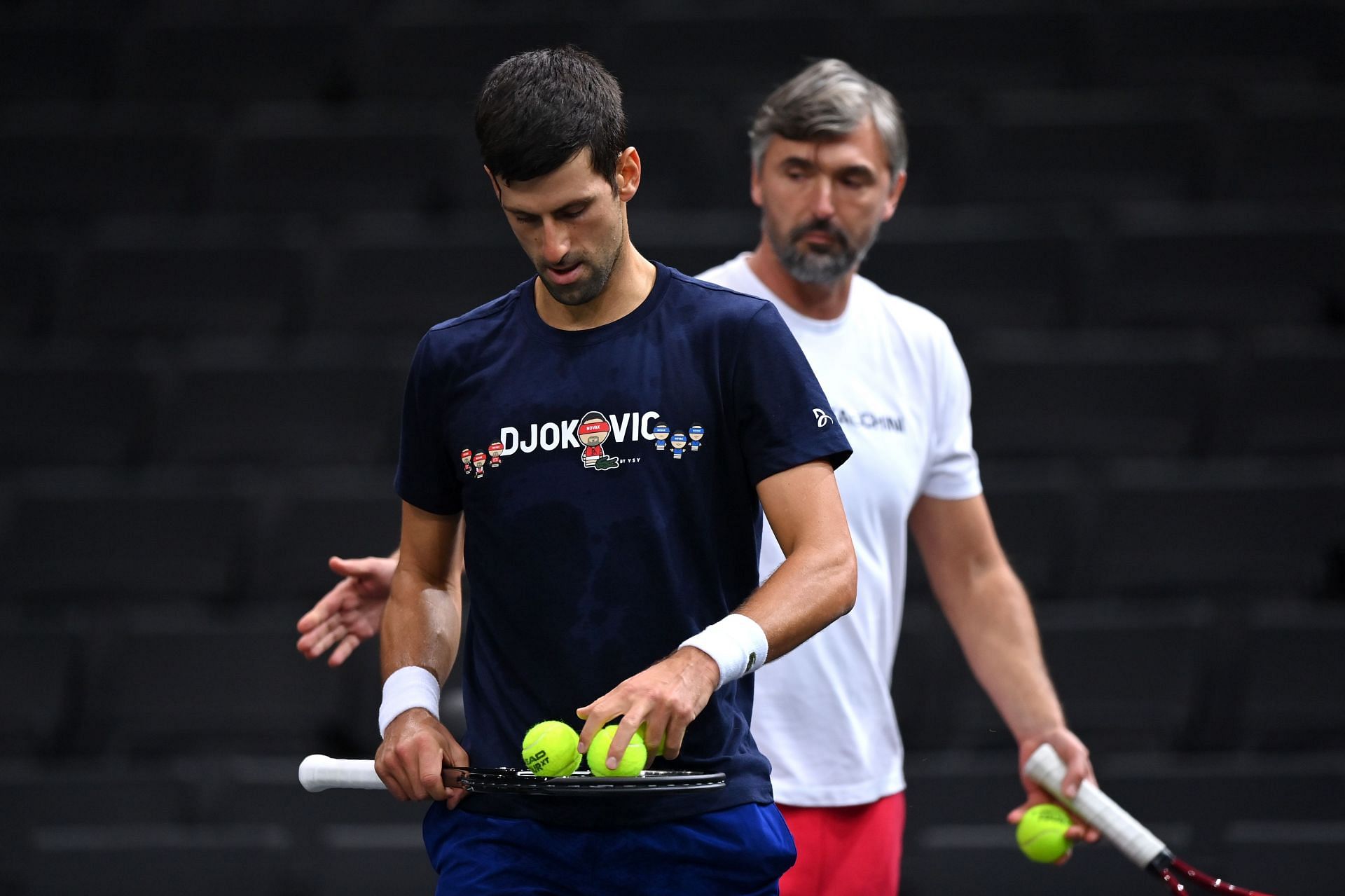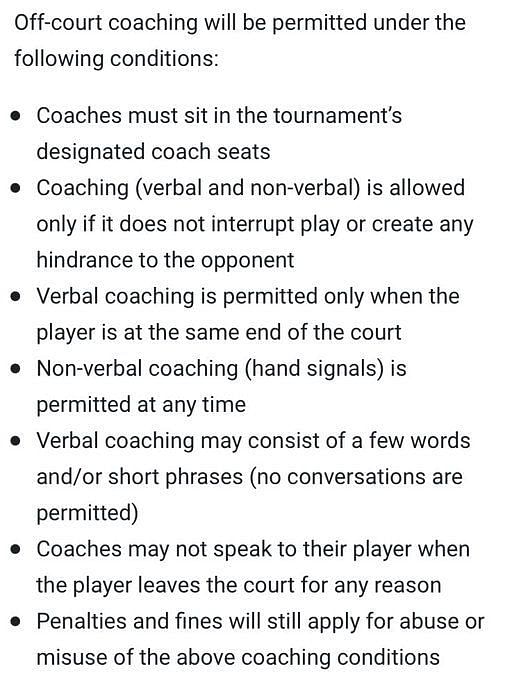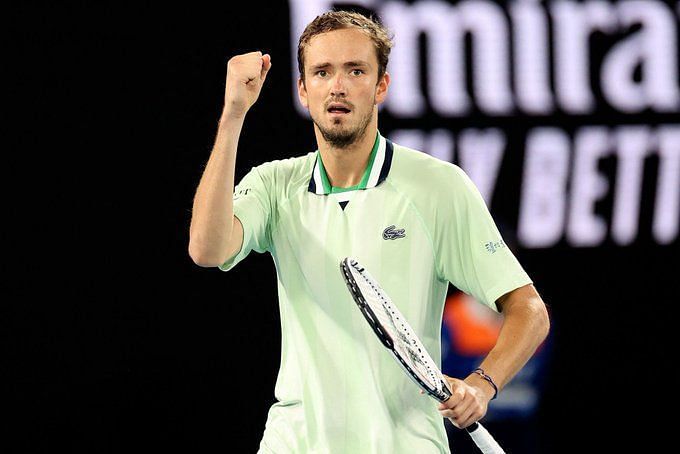
ATP to allow off-court coaching as trial for second half of 2022 season

In a significant decision, the ATP has decided to allow off-court coaching, albeit on a trial basis, for the remainder of the 2022 season.
The change will come into place in the week starting July 11. It will run through the US Open until the season-ending ATP Finals in Turin in November. Interestingly, off-court coaching on a trial basis is already in place at the US Open and the WTA tour.
As per the ATP announcement, coaches will be allowed to communicate with players under the following conditions:
- Coaches must sit in the tournament’s designated coach seats
- Coaching (verbal and non-verbal) is allowed only if it does not interrupt play or create any hindrance to the opponent
- Verbal coaching is permitted only when the player is at the same end of the court
- Non-verbal coaching (hand signals) is permitted at any time
- Verbal coaching may consist of a few words and/or short phrases (no conversations are permitted)
- Coaches may not speak to their player when the player leaves the court for any reason
- Penalties and fines will still apply for abuse or misuse of the above coaching conditions
The same was confirmed by the ATP on its website as well as by Luca Florino, an Italian journalist and tennis commentator for SuperTennisTV.
The ATP intends to evaluate the trial at the end of the season and deliberate on its potential inclusion for subsequent seasons.
Off-court coaching has been a controversial topic on the ATP Tour
Off-court coaching has been a controversial topic in the sport, with many players accusing their opponents of 'illegally' receiving coaching on the court.
One such high-profile instance happened in the Australian Open semifinal earlier this year, when eventual finalist Daniil Medvedev accused his opponent Stefanos Tsitsipas of receiving on-court instructions from his father Apostolos during the match.
After his 7-6(5), 4-6, 6-4, 6-1 loss, Tsitsipas denied the allegations.
"I wasn't getting coaching," said Tsitsipas, adding, "It's funny. I don't pay attention to the stuff. I know players like to do this stuff to throw you off mentally. It could maybe be a tactic. It's alright"
Medvedev laterv clarified that he wasn't accusing his opponent of cheating.
"I got broken, I got a little bit mad. I thought the referee could do a little bit better with the crowd, just to say: 'Quiet, please'," Medvedev said.
"Before every return his father was talking Greek. I don't know what his father is saying. Maybe he's just saying: 'Let's go, next point'. It's completely allowed. There is no problem with it. But he's saying something in Greek just before I return, and I feel like he's even telling him where to serve. I don't know. I don't know Greek," Medvedev added.

